Are you a freelancer facing a dispute with a client? Navigating these challenges can be tricky, but it's essential to approach the situation with a clear plan. In this article, we'll explore effective strategies to resolve conflicts while maintaining professionalism and protecting your interests. Let's dive in and empower you to manage such situations with confidence!

Clear identification of parties involved
In freelance dispute resolution, clear identification of parties involved is crucial for effective communication. Freelancers, often self-employed professionals offering services like graphic design or copywriting, should be distinctly identified along with their business details, including names, addresses, and contact information. Clients, which can range from small businesses to large corporations, must provide similar identification. For example, a freelance photographer working for a merchandising company (like ABC Merch Co. based in New York) must ensure both parties are clearly outlined, including the project's specifics and any relevant agreements. Documentation such as contracts and invoices should accompany these identifications to strengthen the case and facilitate resolution efforts.
Specific description of the dispute
Disputes involving freelance work often arise due to unmet expectations or miscommunication. A common situation includes disagreements over project deliverables, such as the quality, scope, or timeliness of the work provided. For instance, a freelance graphic designer contracted for a logo design may deliver work that does not align with the client's specified requirements or branding guidelines, leading to dissatisfaction. Additionally, payment issues can emerge, with freelancers potentially not receiving agreed-upon compensation by the deadline set in the contract, often referencing specific milestones. Such conflicts require clear communication, documenting all interactions and expectations to facilitate effective resolution, possibly involving mediation or review by a third-party platform.
Referencing relevant terms or agreements
Freelance disputes often arise from unclear agreements or misunderstandings about project scope. For example, a contract might include specific terms such as payment schedules, deliverables, deadlines, and revision policies. Understanding these key terms is crucial. The location of the agreement, such as New York's legal jurisdiction, may also influence the resolution process. Clear communication about grievances, such as late payments or unsatisfied project outcomes, can help clarify expectations and promote amicable resolutions. Utilizing platforms like Upwork or Fiverr can provide additional dispute resolution services, aligning with predefined terms established during contract negotiations. Documenting all communications and agreements is essential to support claims and facilitate a structured resolution process.
Proposed resolution or compromise
Freelance disputes often arise from misunderstandings regarding project expectations, payment terms, or deadlines. An effective resolution can involve a proposed compromise, where both parties agree to communicate openly about their concerns. For instance, if a freelancer in Los Angeles, who provided graphic design services for a client, feels underpaid for 40 hours of work, a reasonable compromise might include revisiting the initial contract to clarify deliverables and adjusting compensation based on mutual agreement. Additionally, establishing a new timeline for project completion can help ease tensions and ensure that both parties align on expectations moving forward. This not only fosters goodwill but can also preserve professional relationships in the competitive business landscape.
Contact information for further communication
Freelancers often encounter disputes regarding project deliverables, payment terms, or communication issues. Clear communication plays a crucial role in resolving such conflicts. To facilitate effective dialogue, include essential contact information such as email address, phone number, and professional social media profiles. Specify the preferred method for responses to ensure timely feedback. For example, an email response within 48 hours can provide structured communication. Maintaining open channels, particularly on platforms like LinkedIn or Upwork, allows for professional engagement during disputes. Documenting all interactions in writing can also help clarify misunderstandings and create a record for resolution.

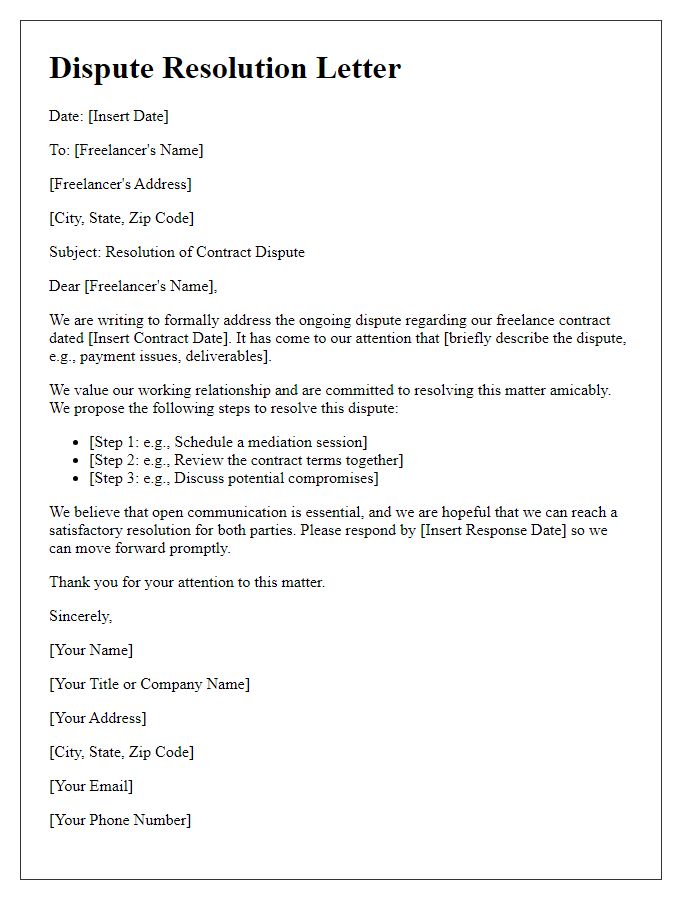
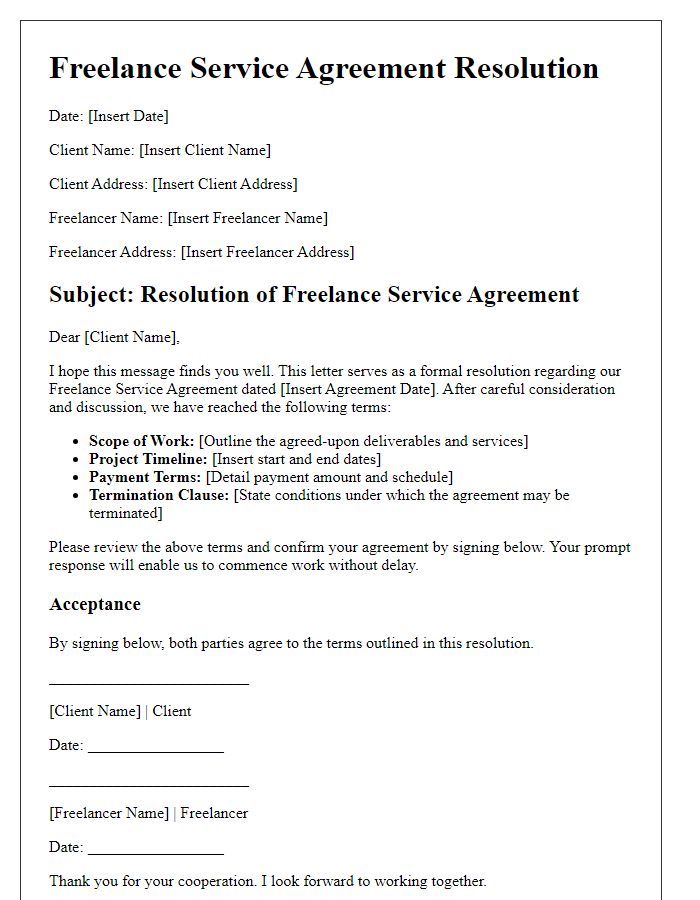
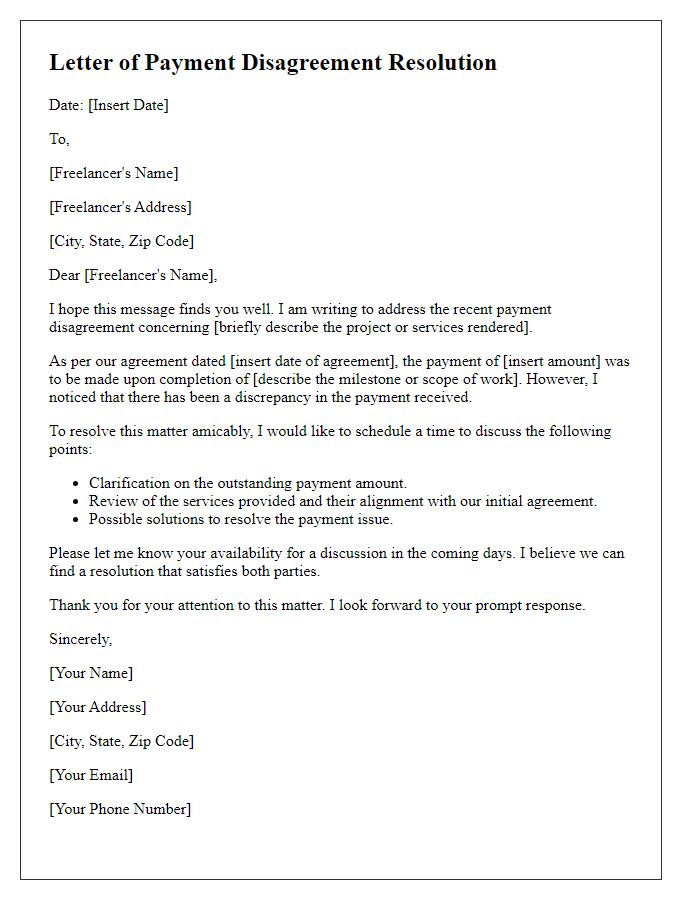
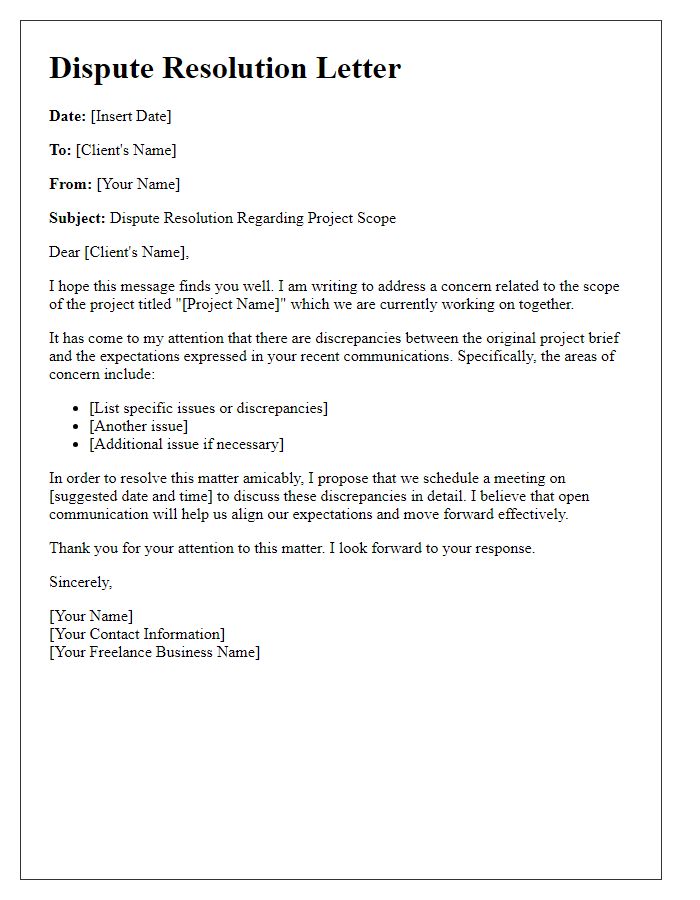
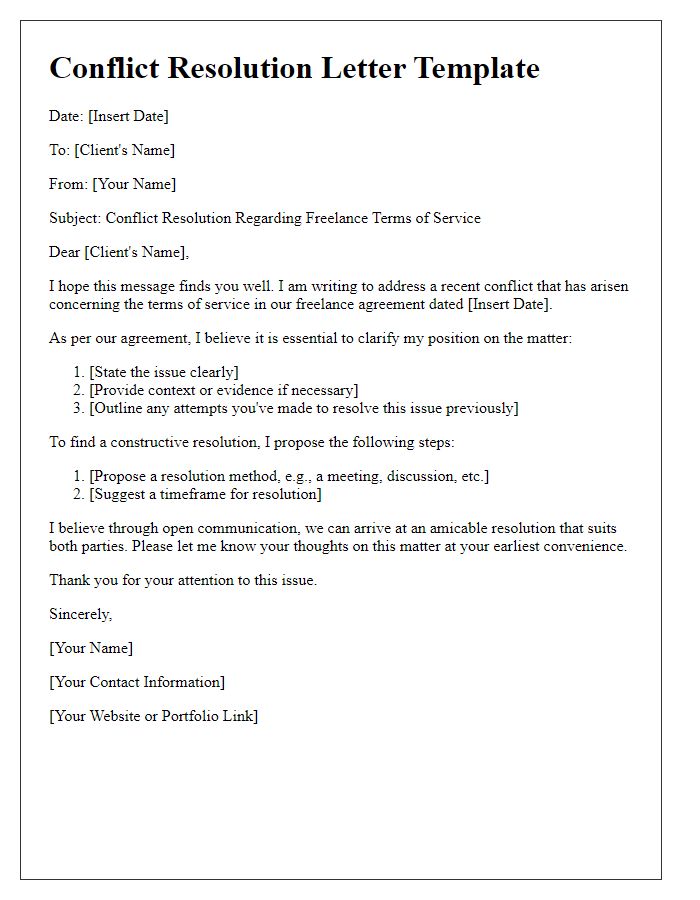
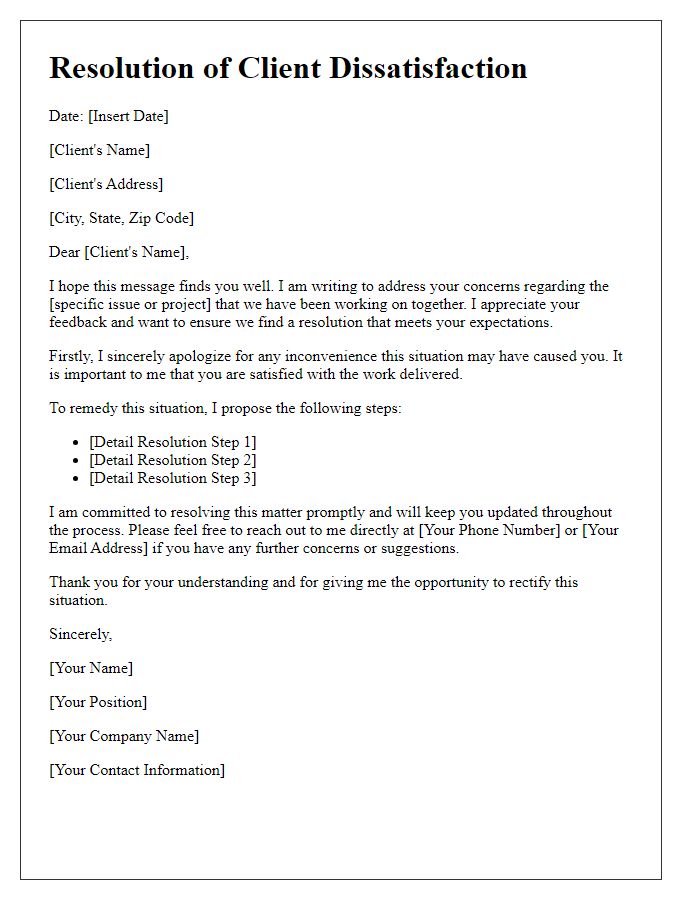
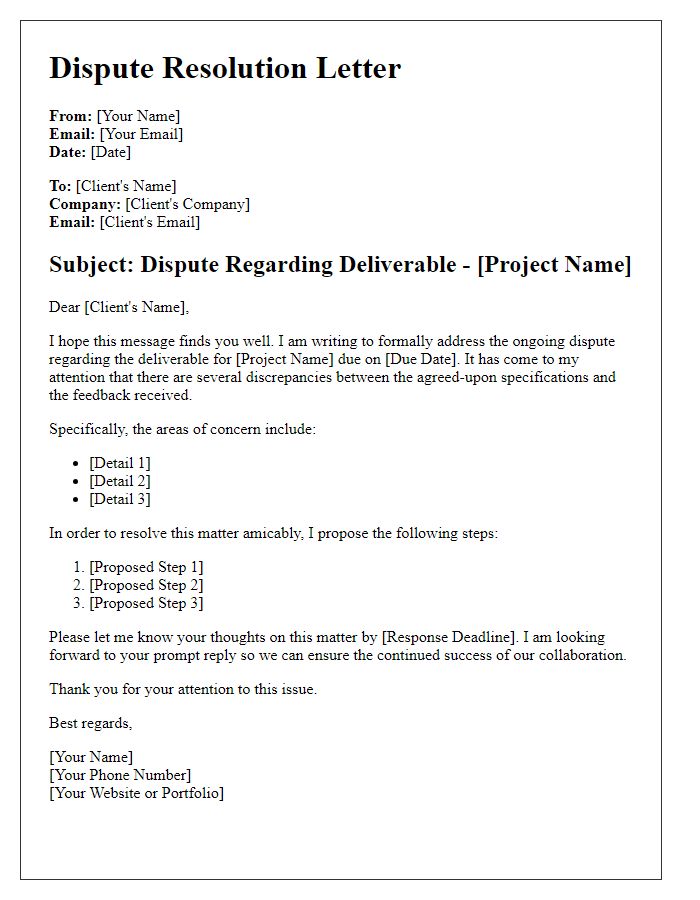
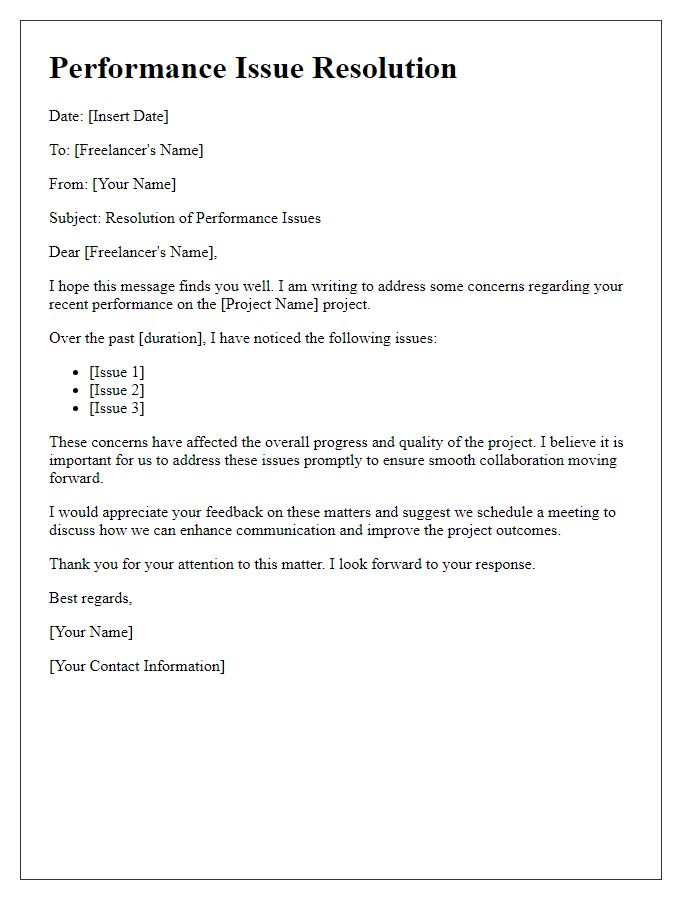
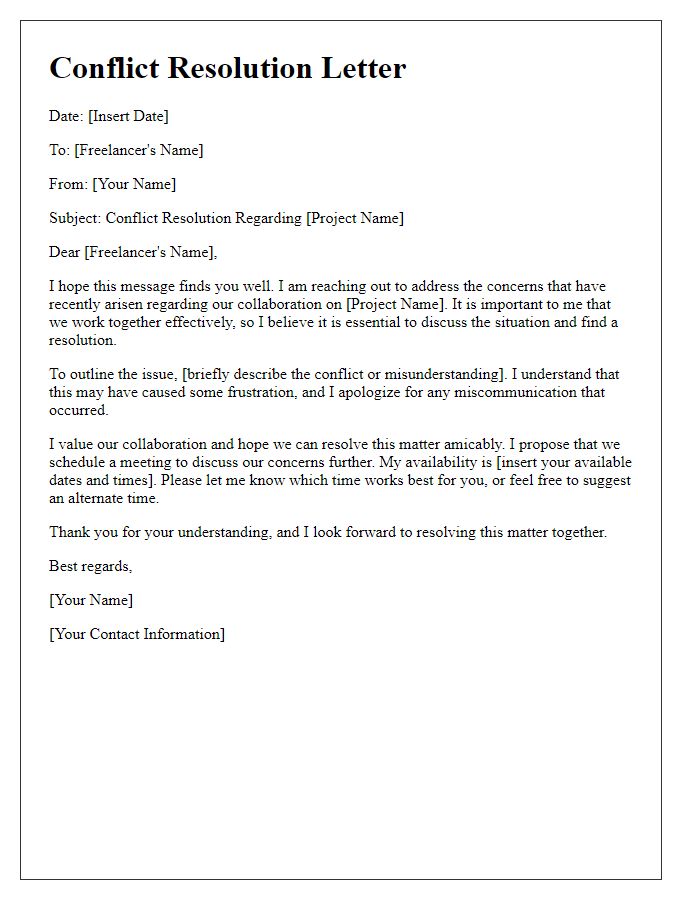
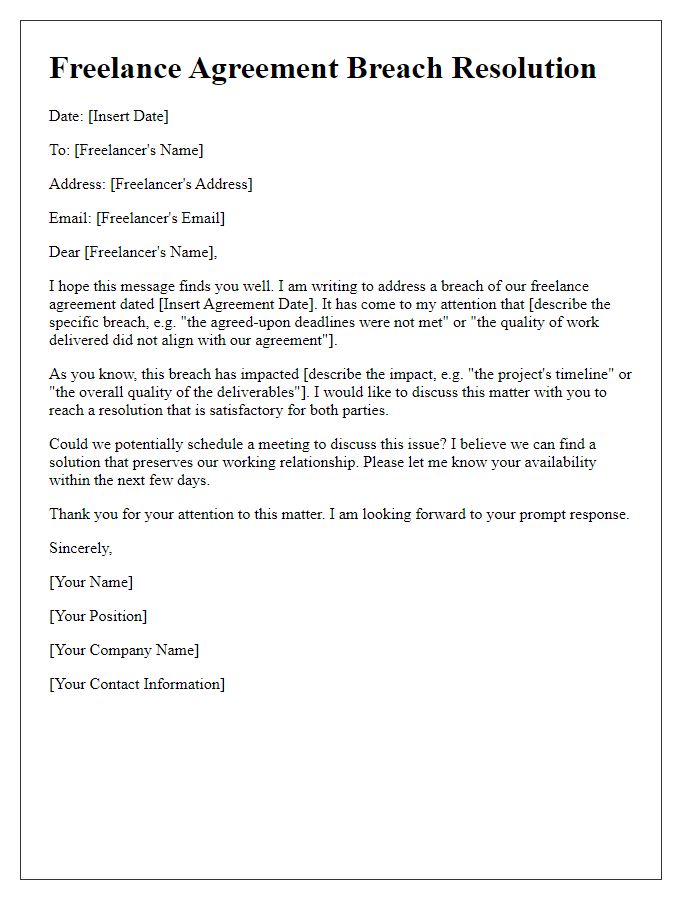


Comments